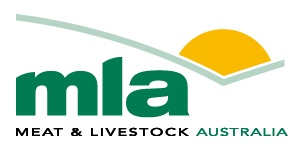
In 2011, the Australian Government introduced a new regulatory framework for the live export industry (the Industry) that covers the entire export supply chain in overseas market places from the point of disembarkation to the point of slaughter. The Exporter Supply Chain Assurance System (ESCAS) places the responsibility on Australian exporters to maintain control and traceability of exported livestock and to ensure measurable animal welfare outcomes in overseas markets.
Coinciding with this, the Australian Government commissioned an independent review of the livestock export trade. The review, undertaken by Mr Bill Farmer AO, recommended that industry explore the application of quality assurance (QA) through the supply chain back on-farm to complement the Government’s regulatory compliance program, ESCAS.
Industry initiated foundation research in 2012 into the role QA and risk assessment may have in assisting exporters demonstrate compliance with ESCAS. A number of recommendations stemmed from this research, primarily: That a QA program complemented by a risk assessment component be developed to support the live export industry in aspiring to best practice and achieving ESCAS compliance.
The outcomes from the foundation research formed the basis of a new research Project initiated in 2014 and funded through the Livestock Export Program (LEP) which is a joint research and development (R&D) partnership between the Australian Government, Meat & Livestock Australia (MLA) and LiveCorp.
This Project focused on the development and piloting of a world-first international conformity assessment program for the welfare and management of livestock. Based on the World Organisation for Animal Health’s (OIE) Terrestrial Animal Health Code (OIE Code) as well as more than 20 international and domestic animal-related programs, guides and codes, this Program became known as the Livestock Global Assurance Program (LGAP).
The development of the LGAP Standards and Certification Rules have followed international guidelines provided by the International Organization for Standardization (ISO) and the World Trade Organisation (WTO).
LGAP has been developed to provide assurances that animals continue to be treated in accordance with the OIE Code and the ESCAS Animal Welfare Standards for Australian livestock from discharge up to and including the point of slaughter in-market.
LGAP is designed to strengthen the assurance sought through ESCAS and strengthen the commitment, oversight and management of welfare more proportionately along the supply chain through Operators (ie exporters and importers) and Facilities (ie feedlots, farms and abattoirs).
A primary component of LGAP is a system to automate the administration, auditing and certification processes under the Program.
In order to establish this system, a competitive international tender was initiated. The terms of reference for this system included detailed technical specifications and business process workflows which describe the overall operational workflow of the Program and an assessment of where the IT system would engage in and interact with the workflows and how this would be enabled. More than 150 specifications were identified, the majority of which were considered major ‘must haves’.
Overall, six international vendors expressed initial interest and were offered the opportunity to submit questions and attend a briefing session in order to better understand the scope of the proposed IT system. All vendor questions were collated and written answers to all questions received were submitted to all vendors to ensure the provision of information was equitable.
Four vendors submitted formal expressions of interest and provided initial demonstrations to the Project Team. Four other vendors, who initially indicated interest, chose not to submit a response or withdrew from the process.
The selection was made by a group of six people operating under the project’s guiding Consultative Committee. After appropriate demonstrations, reviews and reference checking, this group recommended Compliance Experts as the preferred vendor to deliver the required solution. In May 2015, this recommended was unanimously supported by the Consultative Committee. In July 2015 this was further endorsed by the Livestock Exporter Research and Advisory Committee (LERDAC) and approval to proceed with the development of the IT system was given by the MLA and LiveCorp Boards.
The research project team worked with Compliance Experts to build the IT system to the agreed specification. This included four two-day workshops to map out all of the workflow processes, configuration requirements and further specifications and a further one-day workshop post-pilot to refine the system based on pilot findings. The IT system came to subsequently be referred to as the LGAP Conformance System (or LGAP CS).
Compliance Experts delivered the specified pilot-ready solution on time and to budget in October 2015.
The pilot of LGAP and the LGAP CS was undertaken October 2015 through January 2016 in the Middle East, Indonesia, Malaysia and Australia. The Program pilot was trialled among 13 Operators and Facilities with four Certification Bodies and six auditors.
Overall the LGAP pilot was a success. The process tested the design and operation of all essential Program components across various supply chains in different markets, including the LGAP CS. No fundamental issues were encountered and, as anticipated, the pilot identified a number of enhancements or areas requiring further consideration.
Based on the pilot, it is considered that the Certification Requirements, including the audit and evaluation process, Certification Rules and LGAP Standards, and the LGAP CS were understandable and able to be applied and used correctly, are clear and intuitive. The visibility provided to various users through the LGAP CS was found to be exceptional.
The research project, which included the development of the LGAP CS by Compliance Experts, was completed in March 2016. The Australian livestock export industry is now reviewing the findings of the research, including the outcomes of the pilot and the LGAP CS, and considering the feasibility of implementing LGAP.
Yours sincerely

Michael Finucan
General Manager – International Markets
Meat & Livestock Australia
